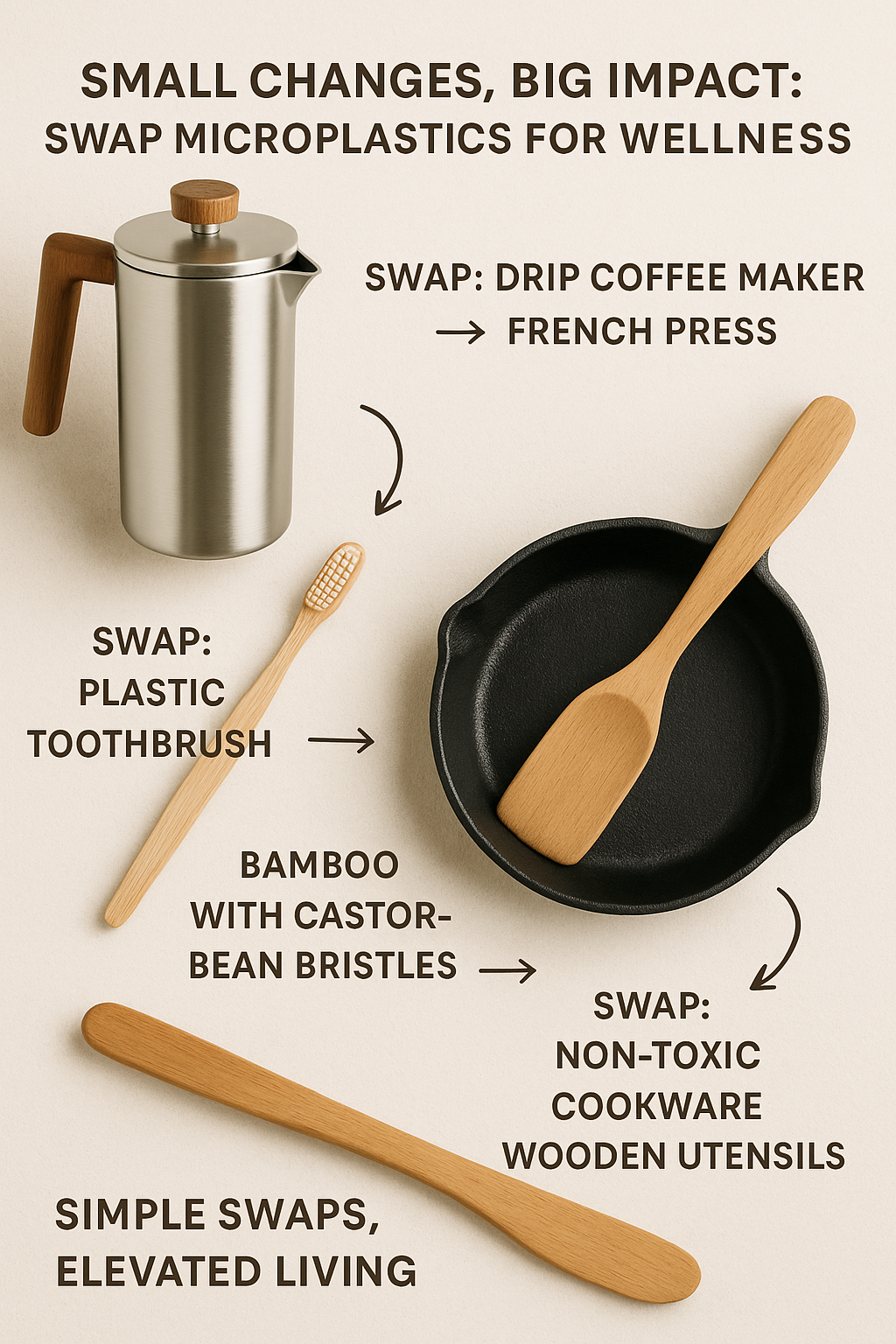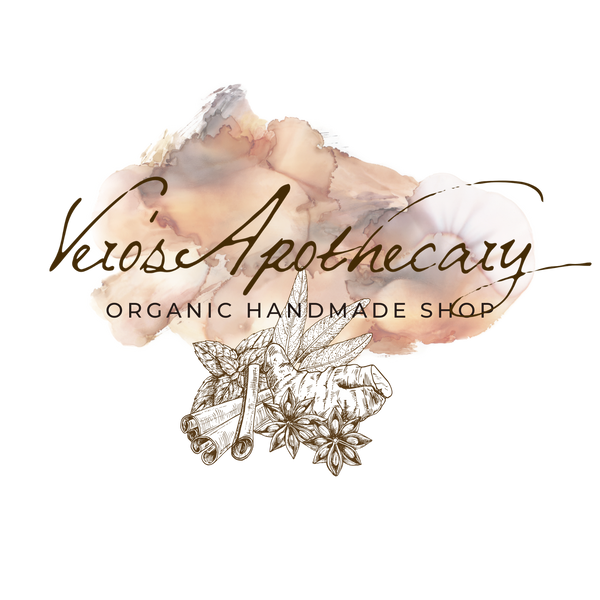
Small Changes, Big Impact: Swap Microplastics for Wellness
Share
It’s early morning, the sound of soft rain tapping against the windows, and Veronica and I are sitting together with warm mugs of coffee between our hands. The kids are still asleep, the house is quiet, and for a moment, everything feels simple. Peaceful. This is the ritual we didn’t even know we were missing until we ditched the old plastic-filled drip machine and switched to a stainless steel French press. The coffee tastes better, yes—but more than that, it feels better. There’s a sense of care to it. A slowing down. A tiny act of rebellion against a world that keeps pushing us to move faster, buy more, and think less.
The truth is, we’re all being poisoned slowly. Microplastics are now found not just in our bloodstreams and organs—but even in the human brain. The air we breathe, the food we eat, the water we drink—none of it is untouched. And the people in power? The ones who claim to keep us “safe”? They’ve made it clear: profits come first. Always. We are not their priority. Our children’s future is not their priority.
But this—this is how we take our power back. By making small, deliberate choices. By opting out of the systems that harm us in ways both visible and invisible. By choosing wellness, slowness, and connection over convenience and waste. This is what freedom looks like. Not waving a flag, not clinging to slogans—but living in alignment with what’s real, what’s true, and what actually serves us.
 Swap: Drip Coffee Maker → French Press
Swap: Drip Coffee Maker → French Press
• Why: Plastic parts in drip machines can shed microplastics into your brew and air.
• Benefit: French presses are fully stainless or glass—no plastic contact, meaning cleaner tasting coffee and peace of mind.
• Lifestyle win: Slower brewing makes coffee time feel ritualistic and rich.
 Swap: Plastic Toothbrush → Bamboo with Castor‑Bean Bristles
Swap: Plastic Toothbrush → Bamboo with Castor‑Bean Bristles
• Bamboo brushes are compostable and avoid plastic shedding at every brush. Plus, castor bean bristles offer natural antimicrobial benefits—healthier for you and the planet.  Swap: Non‑Toxic Cookware, Cutting Board & Wooden Utensils
Swap: Non‑Toxic Cookware, Cutting Board & Wooden Utensils
• Traditional nonstick pans degrade plastic coatings over time—enter microplastics in your food.
• Safe replacements? Stainless steel, cast iron, or ceramic pans with wooden spatulas—a cleaner, safer cook, every time.
⸻
The Microplastic Problem: Not So “Micro” After All
These changes may seem small, but the microplastic impact is astonishing—and ongoing:
• Humans ingest about 5 grams of microplastics every week—that’s roughly the weight of a credit card .
• That adds up to 39,000–52,000 particles per person each year just through food and water .
• Including inhalation, annual exposure is estimated between 74,000–121,000 particles .
Health Red Flags
• Microplastics can cause inflammation, oxidative stress, and disruption of gut bacteria balance .
• They’ve been found embedded in organs—lungs, liver, even the brain. Studies link them to dementia, fertility issues, heart disease, and more .
• A review in Environmental Science & Technology (Dec 2024) concludes microplastic exposure is suspected to harm reproductive, respiratory, and digestive health .
⸻
Simple Swaps, Elevated Living
Swap Benefit
French press Cleaner coffee—no plastic leaching
Bamboo toothbrush Compostable, natural bristles, cleaner brushing
Non‑toxic pots & wooden spatulas Safer cooking, less chemical exposure, longer-lasting tools
Sponges - Safer, plastic free cleaning, these are also odor free
In Summary
Tiny lifestyle choices can have enormous outcomes—both in terms of microplastic reduction and enriched daily rituals. By swapping to sustainable kitchen and personal-care tools, you’re:
1. Cutting weekly intake of ~5g of microplastics
2. Reducing long-term risks tied to organ health and inflammation
3. Embracing a more mindful, tactile experience in your day-to-day routines
We invite you to explore these changes, try them out, and share your experience. Together, we build a healthier, more intentional lifestyle—not just for ourselves, but for the planet. But don't feel overwhelmed, it's really easy to do so when we think about ALL of the things we should swap and it can be daunting. Which is why we did it slowly over time, one item at a time. We have an on-going rule that we do one for one, we'll buy one new product to replace a plastic or toxic item each week and over the last year and half our house is now 65% plastic free. Every little bit makes a difference and I hope the links we've provided make it just a little easier.
